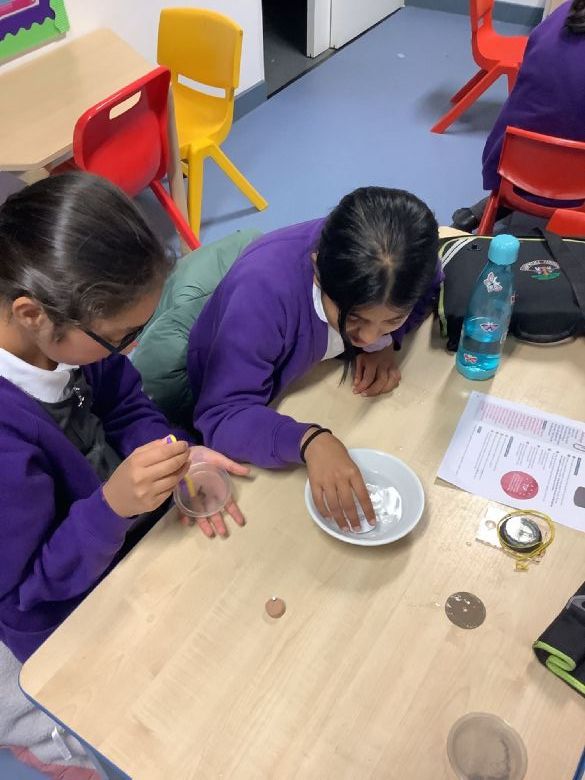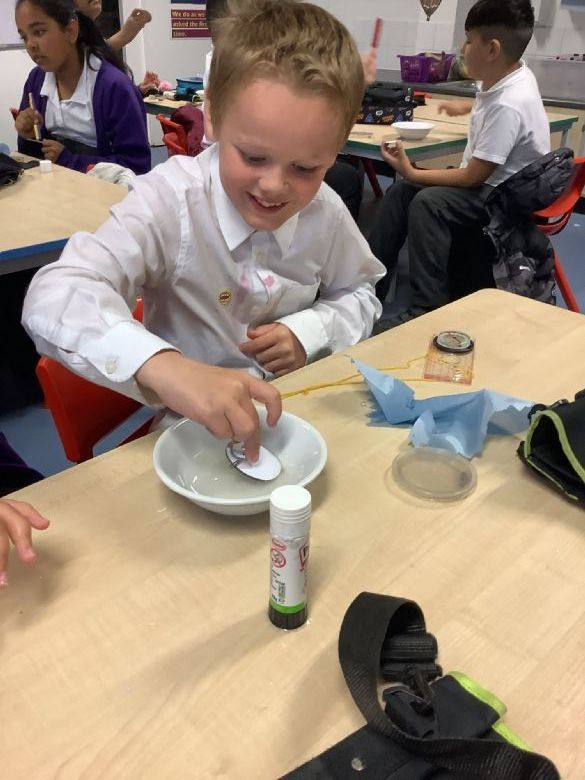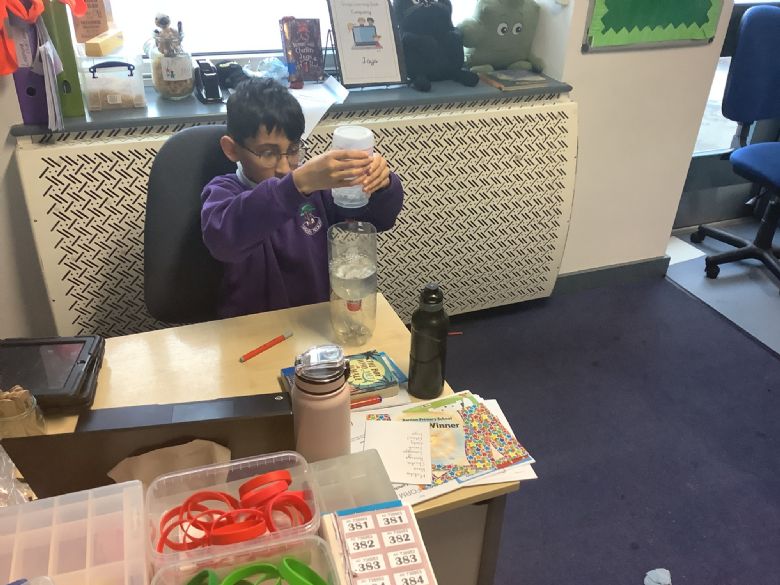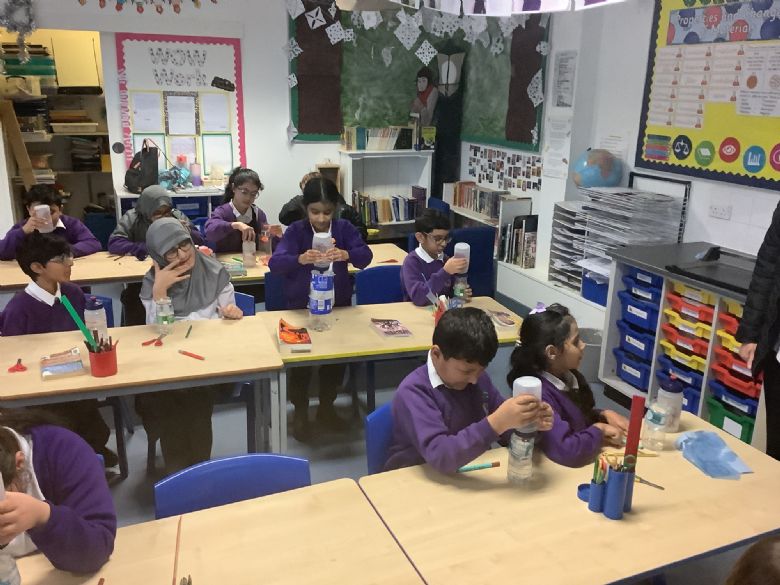Science
Intent
Our science curriculum at Barden Primary is focused upon ensuring that pupils develop the motivation, skills, and knowledge to continue their scientific journey and contribute positively to society, furthering understanding of the world around us. We want our pupils to be:
-
Successful independent learners who can communicate effectively
-
Accomplished with all types of scientific enquiry and subject knowledge
-
Responsible and effective contributors to society
-
Principled, reflective, empathetic individuals
-
Environmentally aware
Lessons are accessible and challenging to all. We have built into our curriculum regular retrieval practice to help ensure that the learning that takes place is permanent. We enrich our time in our school with memorable, unforgettable experiences and provide opportunities which are normally out of reach. We firmly believe that it is not just about what happens in the classroom, it is about the added value and cultural capital we offer to really inspire our children. In each year, the children will be presented with a diverse range of positive role models that highlight historical scientific achievements and contemporary career paths. There are lots of opportunities to develop collaborative work skills, and to present their findings to different audiences. Our curriculum will also encourage environmental responsibility by educating the children about the human impact on our world and encouraging creative thinking about how we can better care for our planet.

Implementation
Science is taught as a discreet subject with links to other subjects when they naturally occur. Our science curriculum has been carefully built and the learning opportunities and assessment end points for group each year are crafted to ensure progression and repetition in terms of embedding key learning, knowledge and skills. When planning science topics, we carefully sequence the learning in our medium-term plans, considering prior learning and common misconceptions. In our weekly plans, we break down the learning into manageable steps, and actively teach the vocabulary the children will need.
Our curriculum provision ensures that learning is embedded within the pupils’ long-term memory, and this is achieved through regular retrieval practice. Misconceptions are actively discussed as part of the lessons and addressed where possible at the point of learning by direct feedback. Teachers have access to subject knowledge support through online resources and their subject coordinator. The knowledge, understanding and vocabulary the children need for each unit is presented to them on a knowledge organiser which is referred to in lessons. When lessons have a scientific enquiry element, that skill is identified and displayed in the classroom during the lesson. Teacher's planning ensures that all students can access the lesson, and those children who achieve the objective are challenged by a deeper learning task. There is time at the end of lessons to reflect on what has been learnt and consider where learning can go next.

Impact
We know that our curriculum provision has been successful because this will lead to excellent progress by all of our pupils, including disadvantaged pupils and those with SEND. Formative assessments are made during regular lessons, and summative assessments at the end of each term during assessment week. Subject knowledge tests target not just learning for the current unit, but also that from previous units to ensure long-term retrieval. Enquiry skills are assessed through TAPS assessment tasks. Assessment data is fed into Target Tracker to aid with analysis.
Staff use assessment data to inform their short-term planning. This helps us provide the best possible support for all of our pupils, including the more able. Assessment information is also analysed by the Science Subject Leader, the Assessment Lead and Headteacher as part of our monitoring cycle and reported to Governors. This process provides the SLT and Governors with an accurate and comprehensive understanding of the quality of science education in our school.
Science is monitored regularly. Monitoring includes book/planning scrutiny, lesson observations and/or learning walks, pupil/parent and/or staff voice.
All of this information is gathered and reviewed. It is used to inform further curriculum developments and provision is adapted accordingly.
When measuring curriculum performance, we also revisit the aims of the curriculum as a further reference to measure success.
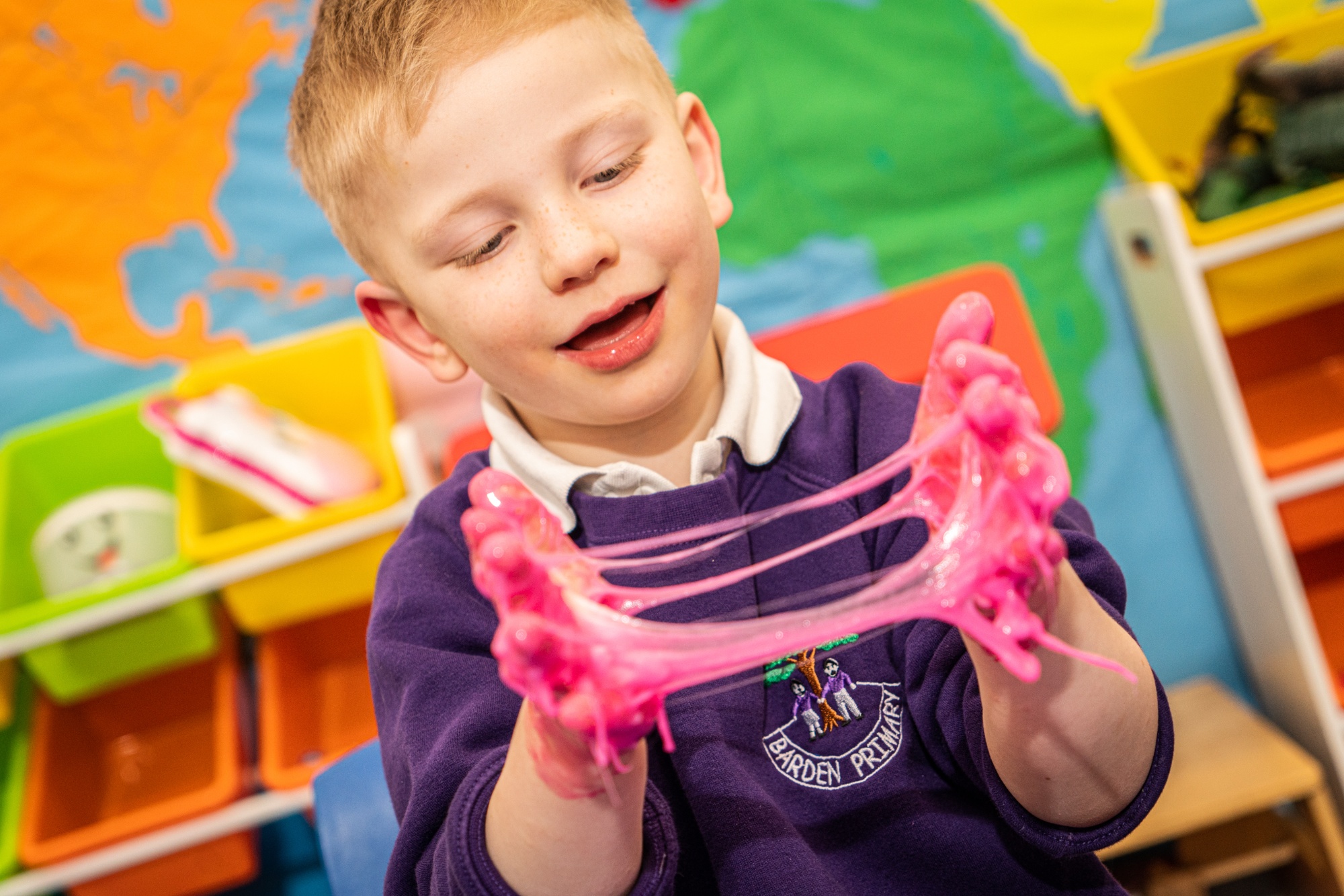
Science Topic Overview
As some units in science contain more objectives than others, topics don't follow the normal pattern of one per half-term. Instead, the number of weeks each topic lasts for is displayed in brackets after the unit title.
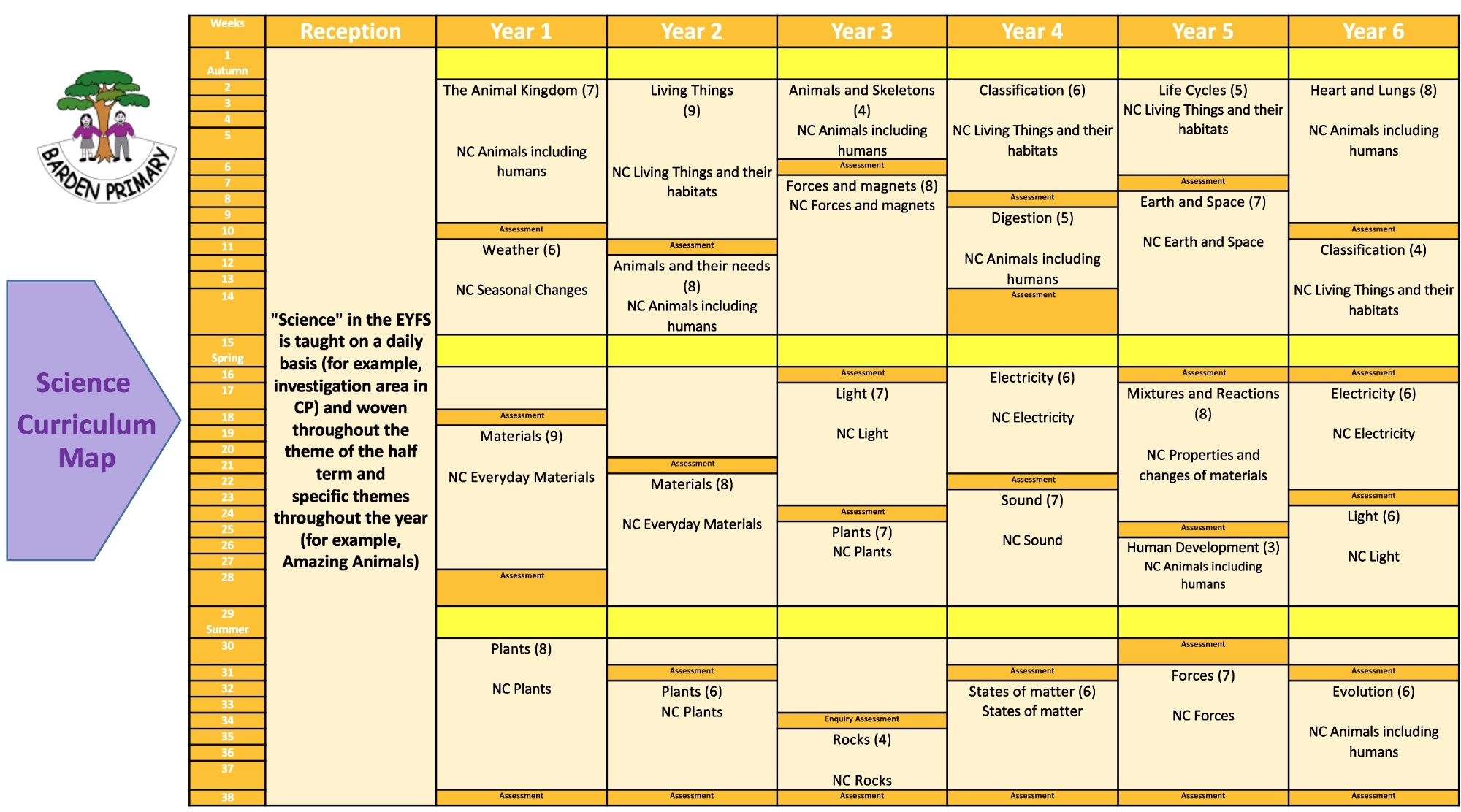
Knowledge Organisers
For each unit, the children are given a knowledge organiser, which they refer to during lessons. These contain the key knowledge, concepts and vocabulary they need for their unit.
Parent Help/Links
These websites are a great resource to support you in engaging in science at home. If you do any amazing science experiments at home, don't forget to email your child's class teacher.
STEM Club
STEM club runs after school on Thursdays for Year 5 and 6 (the other year groups will get a turn later on in the year.) The club links science, technology, engineering and maths. This time, the children are participating in practical, hands-on activities around the theme of "Movies and Magic!"
British Science Week 2024
The theme for this year's science week was 'Time'. The children carried out lots of practical activities and joined in with online lessons and a national poster competition. We were allowed to send five entries from our school and here are the ones that were chosen:
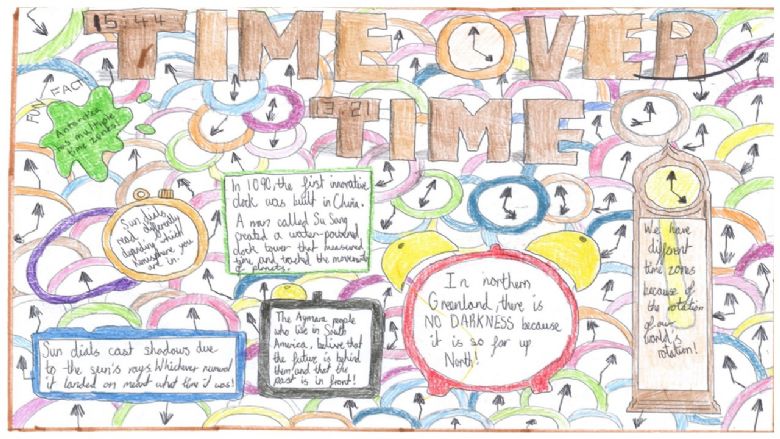
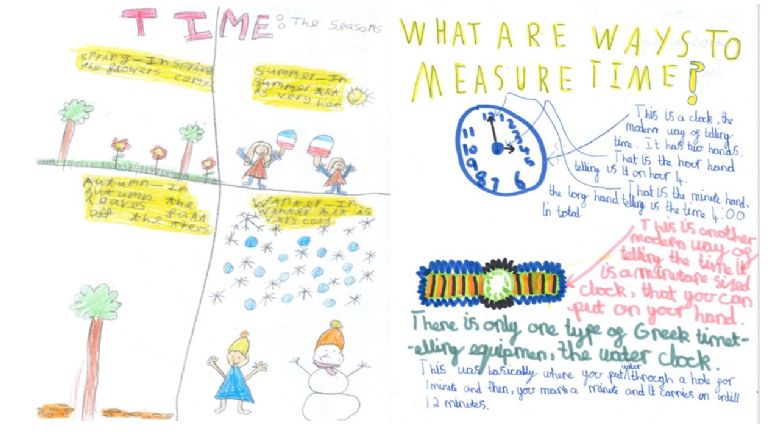
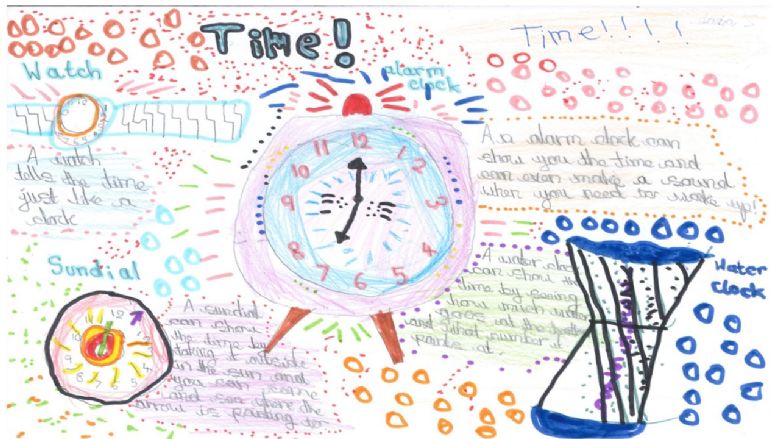

Year 3 -Sundials
Year 3 made sundials. They learnt about the movement of our planet and how it changed the position of the shadow.
Year 5- Water Clocks
Water clocks were one of the oldest ways of measuring time. Year 5 built some from household materials and calibrated them to measure time accurately.
Smashing Stereotypes
Throughout the week, the children learnt about different people from different backgrounds and cultures who have careers in STEM (Science, Technology, Engineering and Mathematics). This enabled them to get a sense of the wide range of opportunities in this field. They also discovered that a lot of the jobs that will be available to them don't even exist yet.
Sharing Assembly
At the end of the week, all the classes presented their science projects in a special assembly and shared some of what they had learnt.

